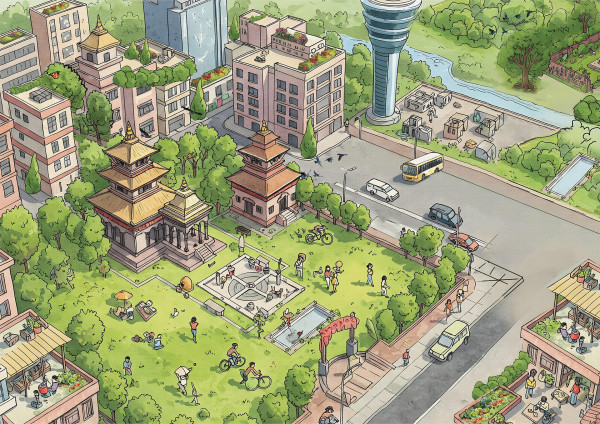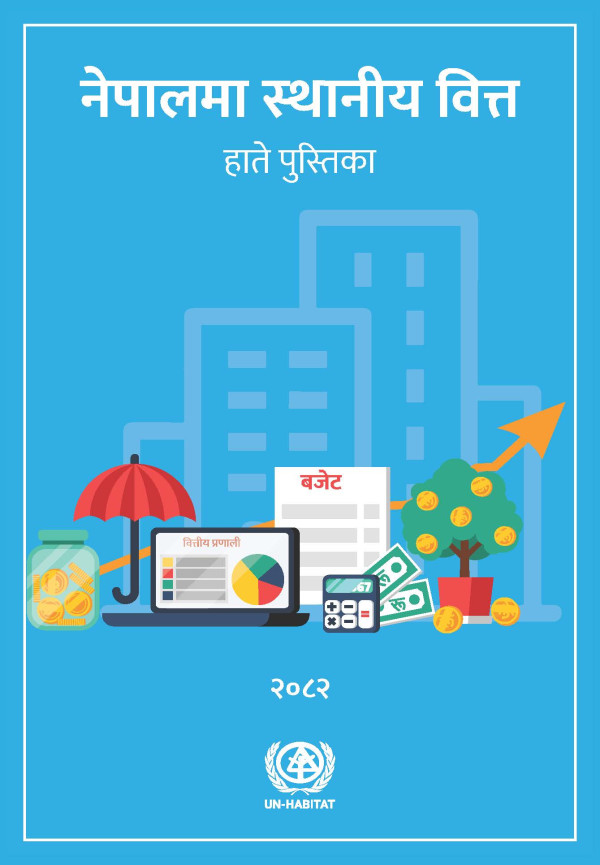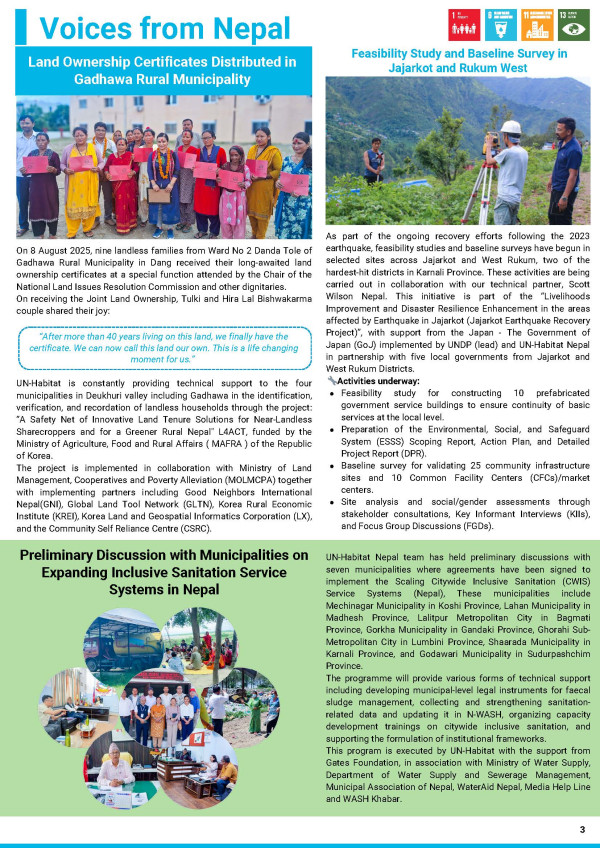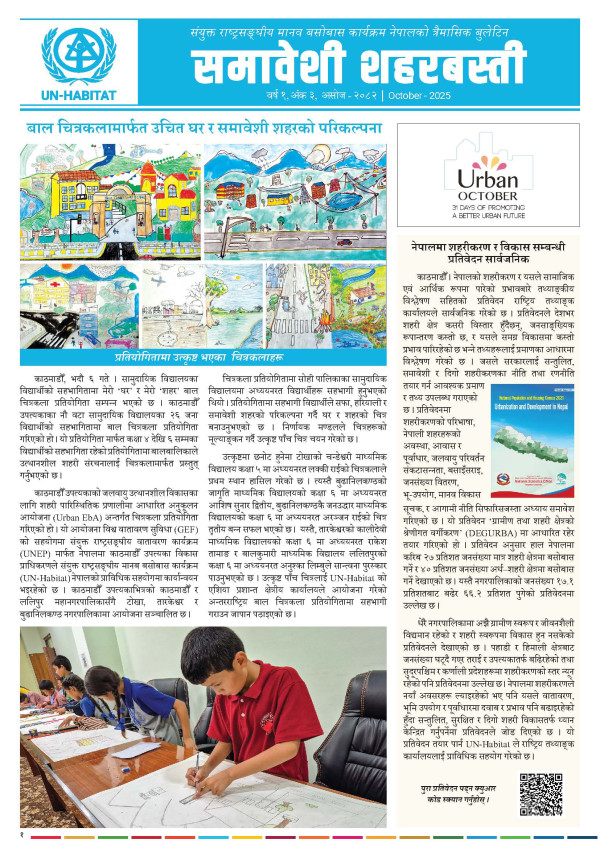National Policy Review Workshop to Advances Inclusive and Climate-Resilient Urbanization in Nepal

Lalitpur, 29 July 2024
The Ministry of Urban Development (MoUD), in collaboration with UN-Habitat, UNOPS and Cities Alliance as partners for the “Cities 4 Women” project supported by the EU and USAID organized a half-day "National Workshop on Policy Review". The event sought active participation of representatives from various government, academic and non-governmental organizations such as: Ministry of Federal Affairs and General Administration (MOFAGA), Ministry of Land Management, Cooperatives and Poverty Alleviation, Ministry of Women, Children and Senior Citizens, Department of Urban Development and Building Construction, Department of Local Infrastructure, Kathmandu Valley Development Authority, Town Development Fund, Rastriya Awas Company Limited, Tribhuvan University, Kathmandu University, Municipal Association of Nepal, National Association of Rural Municipalities in Nepal, Chandragiri Municipality, ICIMOD, National Democratic Institute, DAI, Regional Urban Planners Society of Nepal and other esteemed organizations.
The workshop was chaired by MOUD Joint Secretary Mr. Padma Kumar Mainalee and facilitated by Mr. Kamal Adhikari, Senior Sociologist. It was organized to disseminate findings of a comprehensive policy review of 19 national sectoral policies, with direct implication on urban planning and development, from the lens of climate and gender responsiveness. The finding of review would be inputs for developing the Gender and Climate Responsive - Urban Development Framework for the ministry and a Step-by-Step Municipal Planning Guideline. A tentative annotated Table of Contents (TOC) of these documents was also the presented in the event.
The policy review was undertaken by a team of expert led by Mr. Om Dharananda Rajopadhyaya, and sectoral experts Mr. Kumar Dhamala, Ms. Kopila Rijal, and Mr. Ajay Kumar KC, for Urban Planning & Governance, Gender Equality and Social Inclusion, and Climate Change adaptation respectively.
The policy review discussion highlighted the importance of practical implications of the legal frameworks, the effective implementation of policies at the local level, and the necessity of ensuring diverse contexts of Nepal through an evidence-based and data backed approach. Likewise, the need for strengthening coordination between the three tiers of the government was emphasized by both federal and local government representatives, with an integrated sectoral approach to address the complex issues of urban development, where multiple agencies work in this landscape.
Likewise, result-oriented and indicator-based tracking system for ensuring mainstreaming gender and climate responsiveness in urban planning was unanimously suggested, that would require tools and markers for effective integration and monitoring, to support policy implementation.
On the preliminary draft of the TOC for both the National Framework and the Municipal Planning Guideline, the participants enthusiastically provided inputs on making the documents concise, user-friendly for the local governments, and practical to support its step-by-step implementation.
Further to event synopsis, Ms. Pragya Pradhan, Programme Manager at UN-Habitat, also provided insights into the timeline and future processes for developing the guidelines, that will entail series of discussions and consultations to prepare the drafts by end of November 2024. Mr. Mohan Kumar Ghimire, Under Secretary of the MoFAGA, highlighted the necessity of local government’s ownership and accountability in the guidelines for its implementation.
Chief guest Mr. Padma Kumar Mainalee in his closing remarks, underscored the inclusiveness and sustainability objectives of the “Cities 4 Women” project and invited all stakeholders to participate in future discussions and consultations to support the guideline and framework formulation process. The workshop concluded with a shared commitment to advancing gender-responsive and climate-resilient urban development in Nepal, laying a foundation for future collaborative efforts in this critical area.





